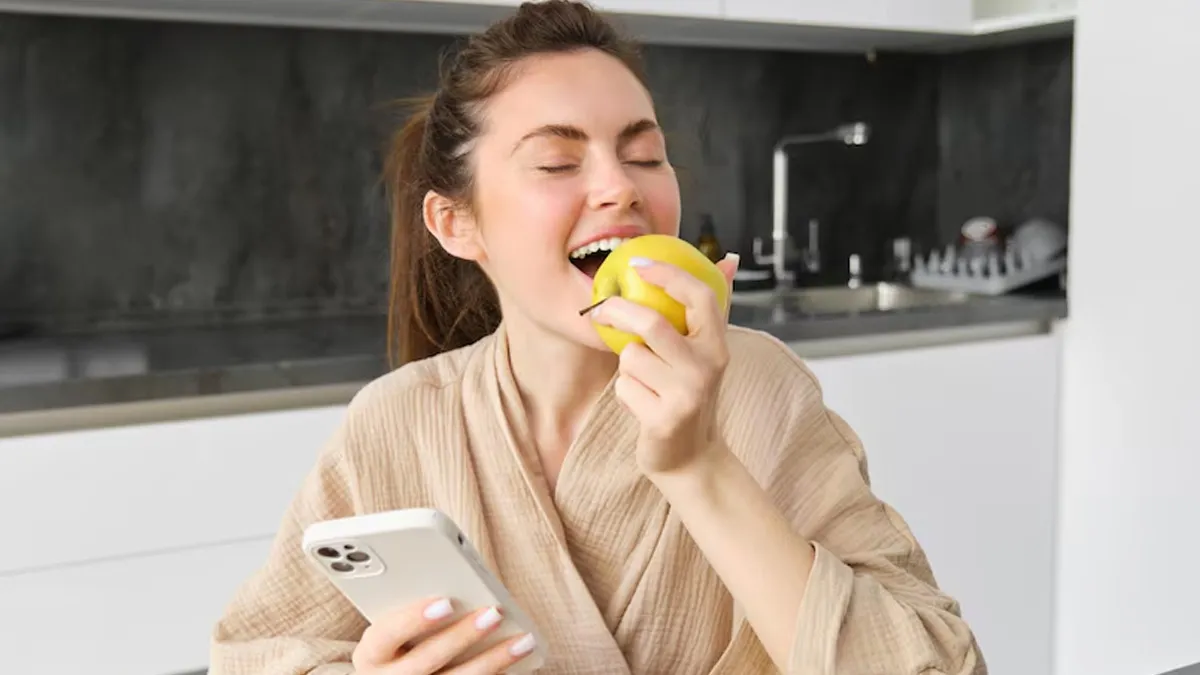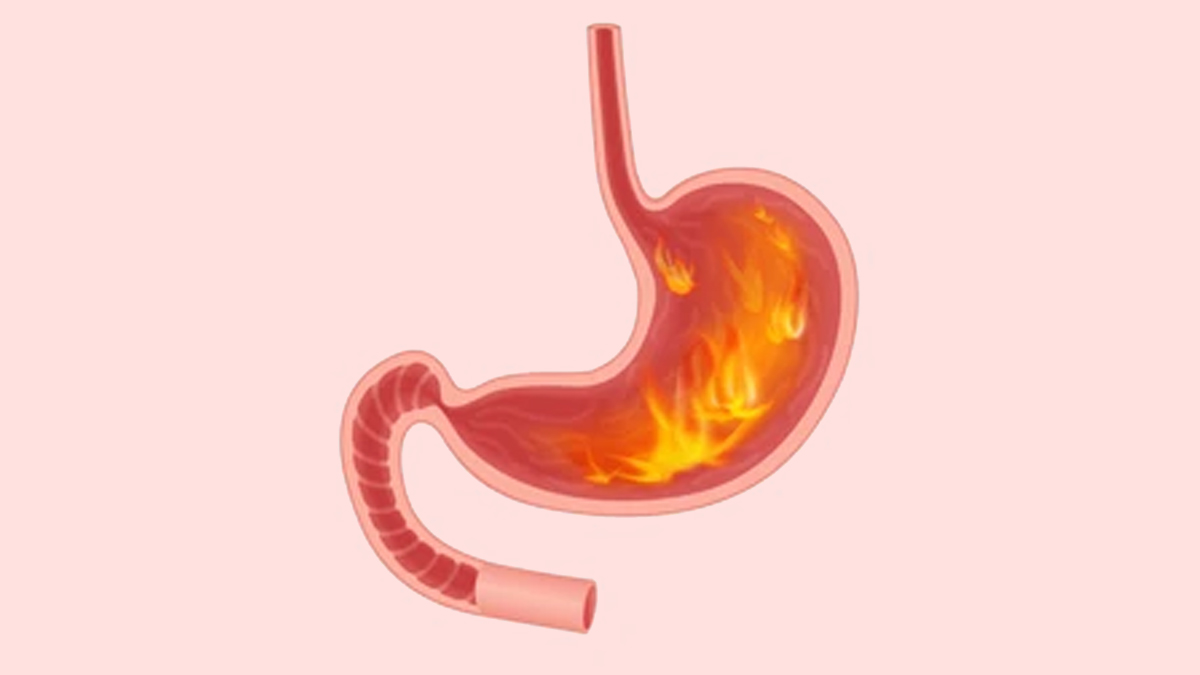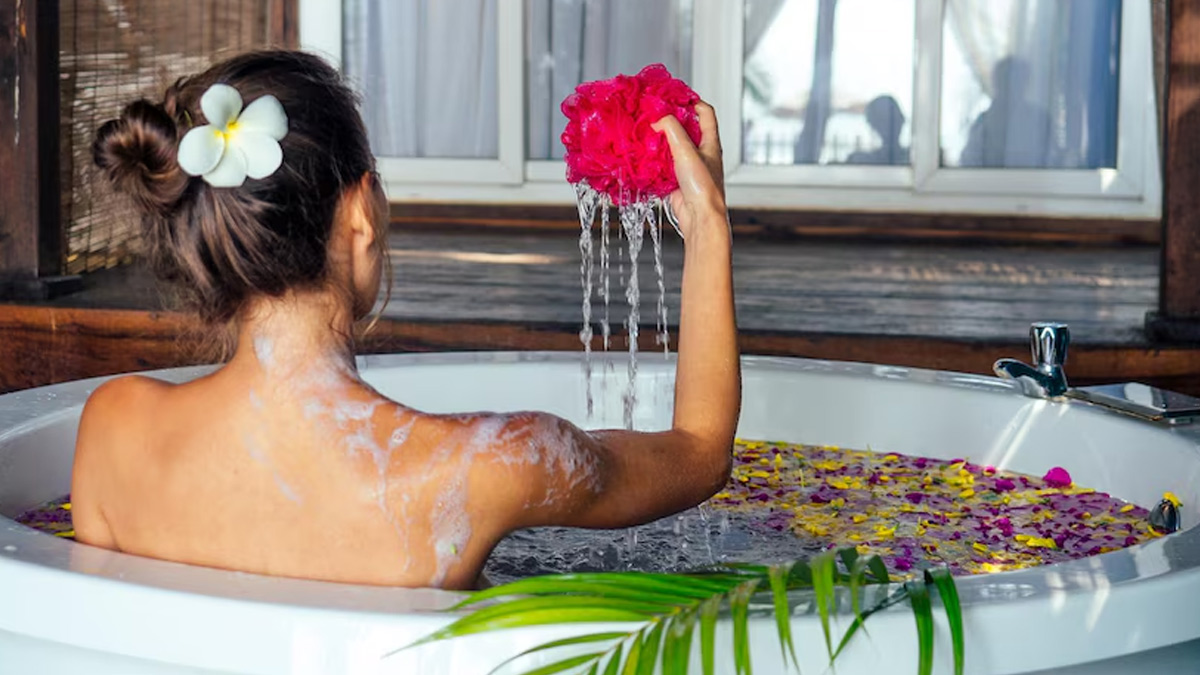
Have you ever been stopped by your mum from rushing to the bathroom right after eating? Mine always insisted I wait at least half hour after breakfast before bathing, even if it meant getting late for work. To dodge her nagging, I started taking a bath before breakfast instead. But her insistence always left me wondering, what does bathing have to do with eating?
Table of Content:-
Bathing immediately after meals is a practice often discouraged by Ayurveda, the ancient Indian system of medicine. The reasoning behind this lies in the intricate balance of Agni, or digestive fire, which plays a crucial role in breaking down food and absorbing nutrients.
To get a detailed understanding of this, OnlyMyHealth team interacted with Dr Sandeep Kisan Rajput, BAMS MD, HOD, and Associate Professor of Balrog (Paediatrics), YMT Medical College, Navi Mumbai.
The Science of Digestion and Agni

"Imagine your stomach as a cooking pot," says Dr Rajput. "When you eat, your body naturally redirects more blood to your stomach to support digestion, just like adding fuel to a fire to cook food properly. In Ayurveda, this digestive energy is referred to as Agni. A strong Agni ensures that the food you eat is efficiently converted into energy, whereas a weak Agni can lead to poor digestion and health issues."
After a meal, our body prioritises digesting the food by channelling blood flow to the stomach. However, by bathing, especially with warm water, you hamper the process. According to the Harvard Medical School, bathing with warm water causes blood vessels near the skin to expand. This natural thermoregulation process diverts blood away from the digestive system, weakening Agni. "This disruption slows down digestion and can lead to discomforts like bloating, gas, and indigestion," explains Dr Rajput.
Also read: Sound Baths: Can It Benefit For Stress And Anxiety? Find Out Here
Ayurveda’s Take on Bathing After Meals

Ayurveda highlights the importance of maintaining a strong digestive fire. Activities that weaken Agni, such as bathing after eating, are advised against. According to Dr Rajput, "Bathing cools the body and disturbs the flow of energy needed for digestion. This imbalance not only impacts digestion but also leads to the build-up of toxins, known as Ama, contributing to fatigue and long-term health issues."
Ancient Wisdom in Practice
The Sanskrit shloka from Asthanga Hridaya Sutra 2/17 warns against bathing immediately after meals. Dr Rajput shares, "It emphasises that Agni must remain strong for optimal digestion and immunity. Bathing at inappropriate times disturbs the balance of bodily energies, or doshas, potentially leading to health issues."
Timing Is Key
To ensure healthy digestion, Ayurveda recommends waiting at least 30 minutes to an hour after meals before taking a bath. "Think of it like letting a meal cook fully on the stove without turning off the heat halfway through," suggests Dr Rajput. This waiting period allows the body to focus entirely on digesting food, without interruptions from external factors like temperature changes.
Also read: Why Are Chances Of A Stroke High In The Bathroom? How To Prevent
Broader Implications

The principle of avoiding baths immediately after meals aligns with the broader Ayurvedic philosophy of maintaining balance and harmony within the body. "Practices that disrupt this balance can lead to the accumulation of toxins, digestive issues, and even chronic health conditions," Dr Rajput noted.
Conclusion
By respecting the natural rhythms of your body and adopting simple lifestyle changes like timing your baths, you can significantly enhance your digestion and overall well-being. Dr Rajput concludes, "This small lifestyle adjustment, rooted in ancient wisdom, can make a significant difference in your health and energy levels."
Taking a mindful approach to everyday habits like bathing can help you align with Ayurvedic principles, promoting a healthier and more balanced life.
Also watch this video
How we keep this article up to date:
We work with experts and keep a close eye on the latest in health and wellness. Whenever there is a new research or helpful information, we update our articles with accurate and useful advice.
Current Version